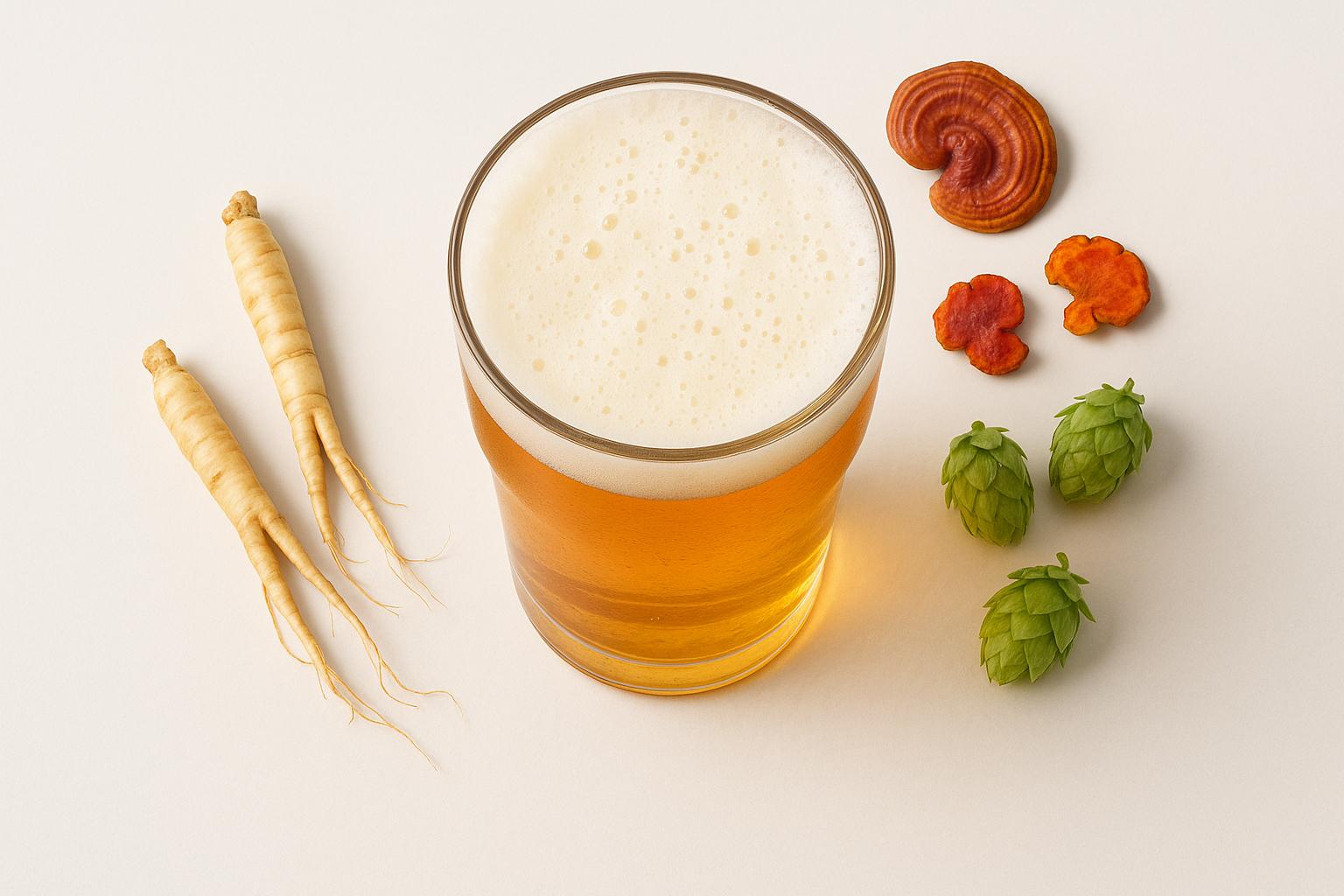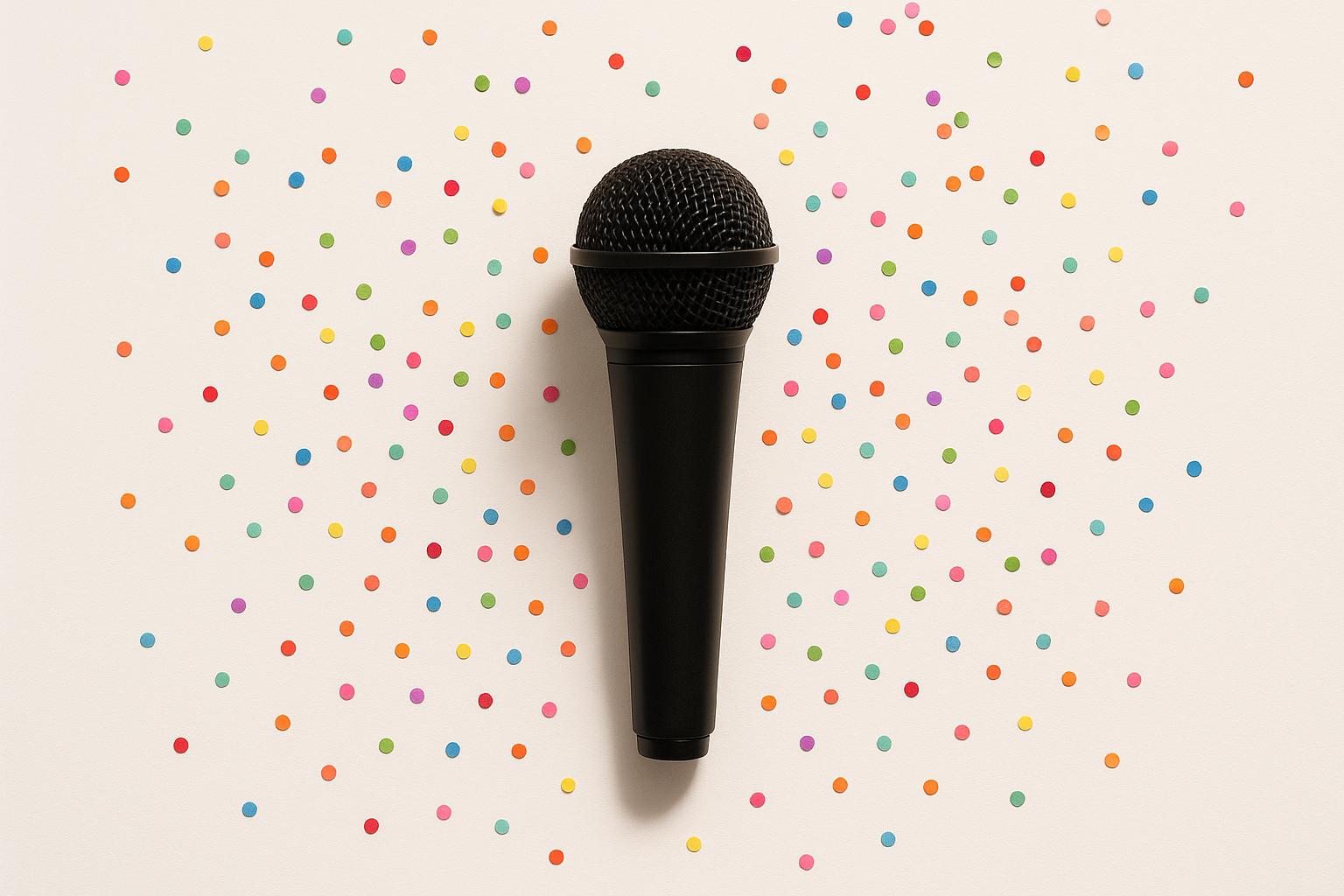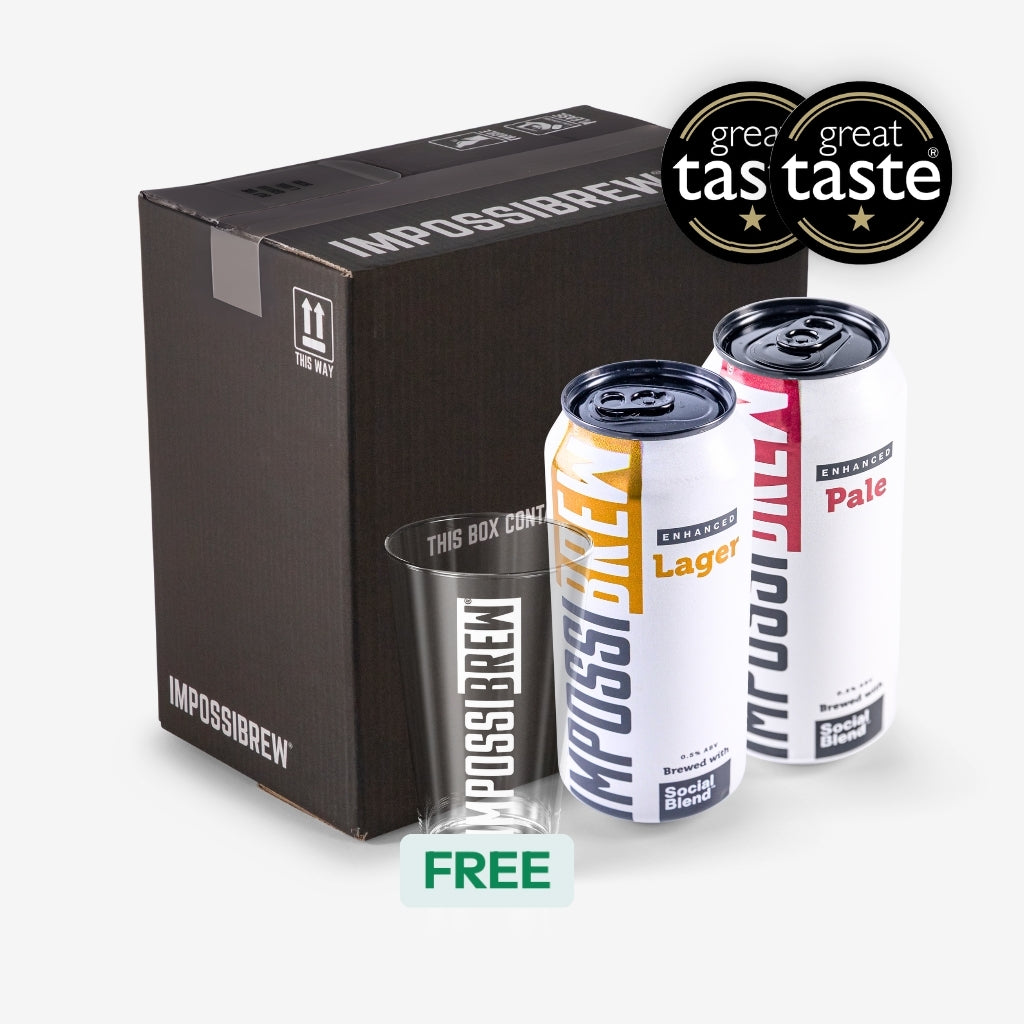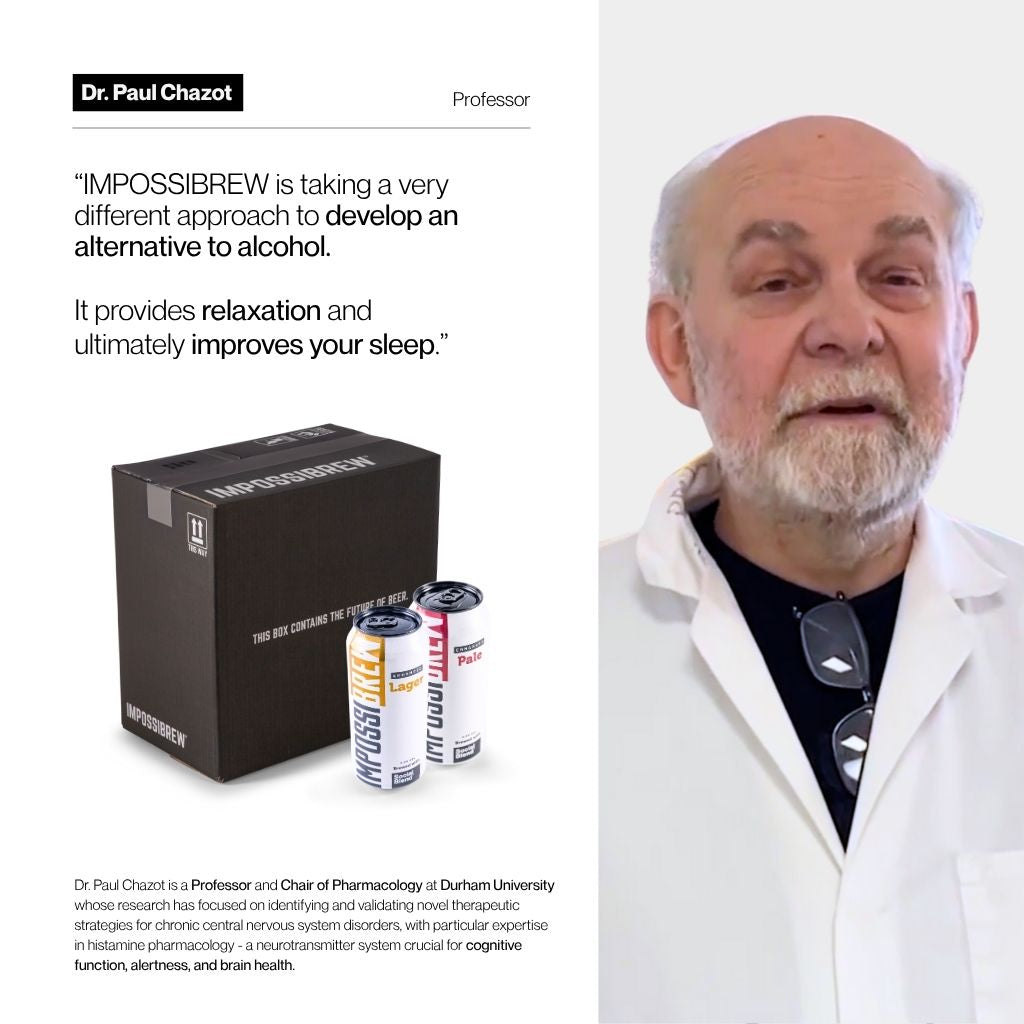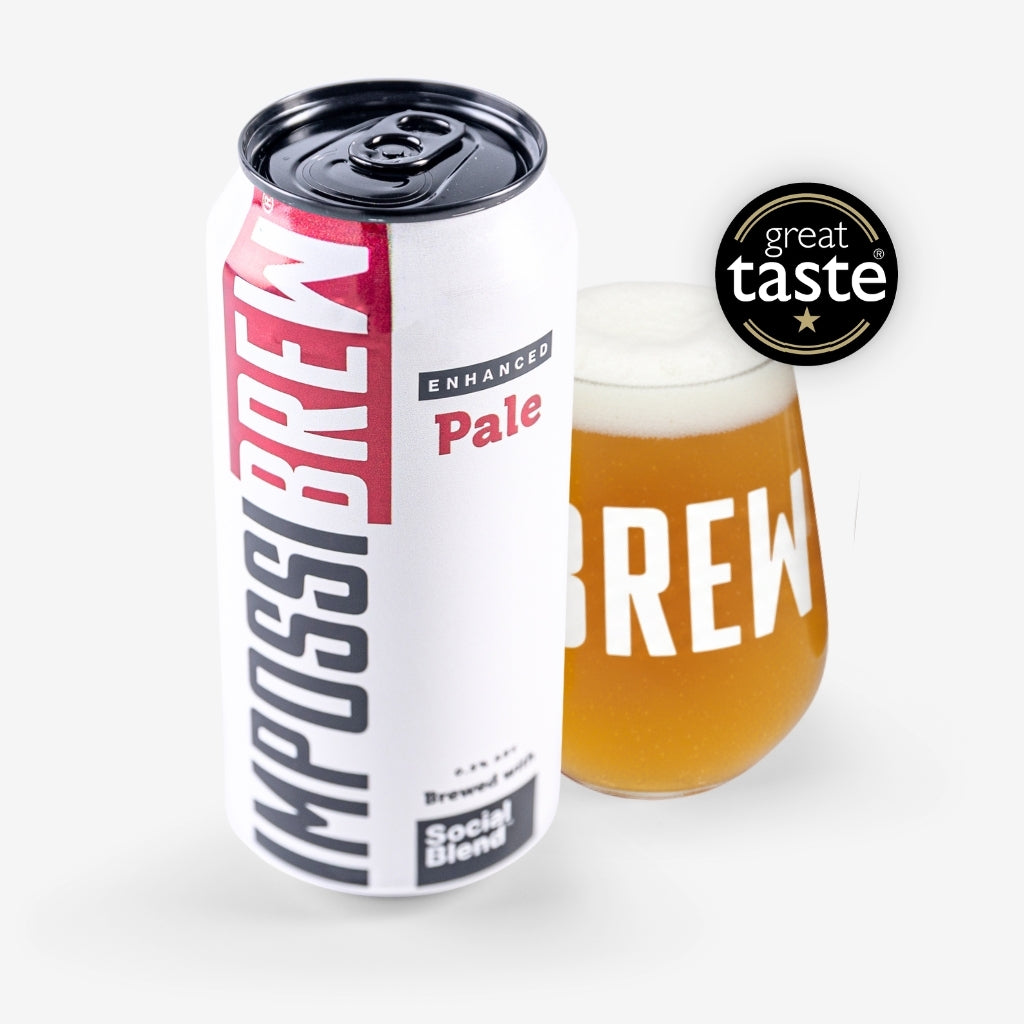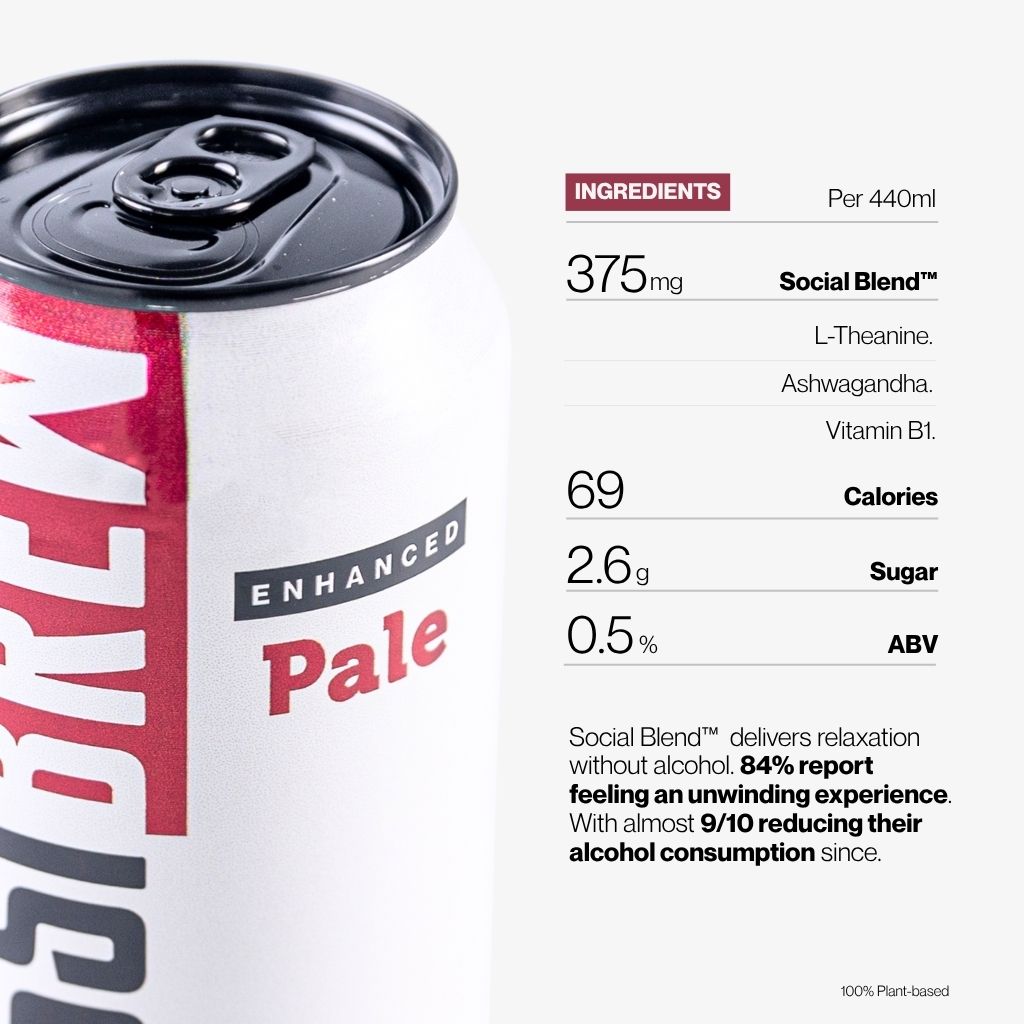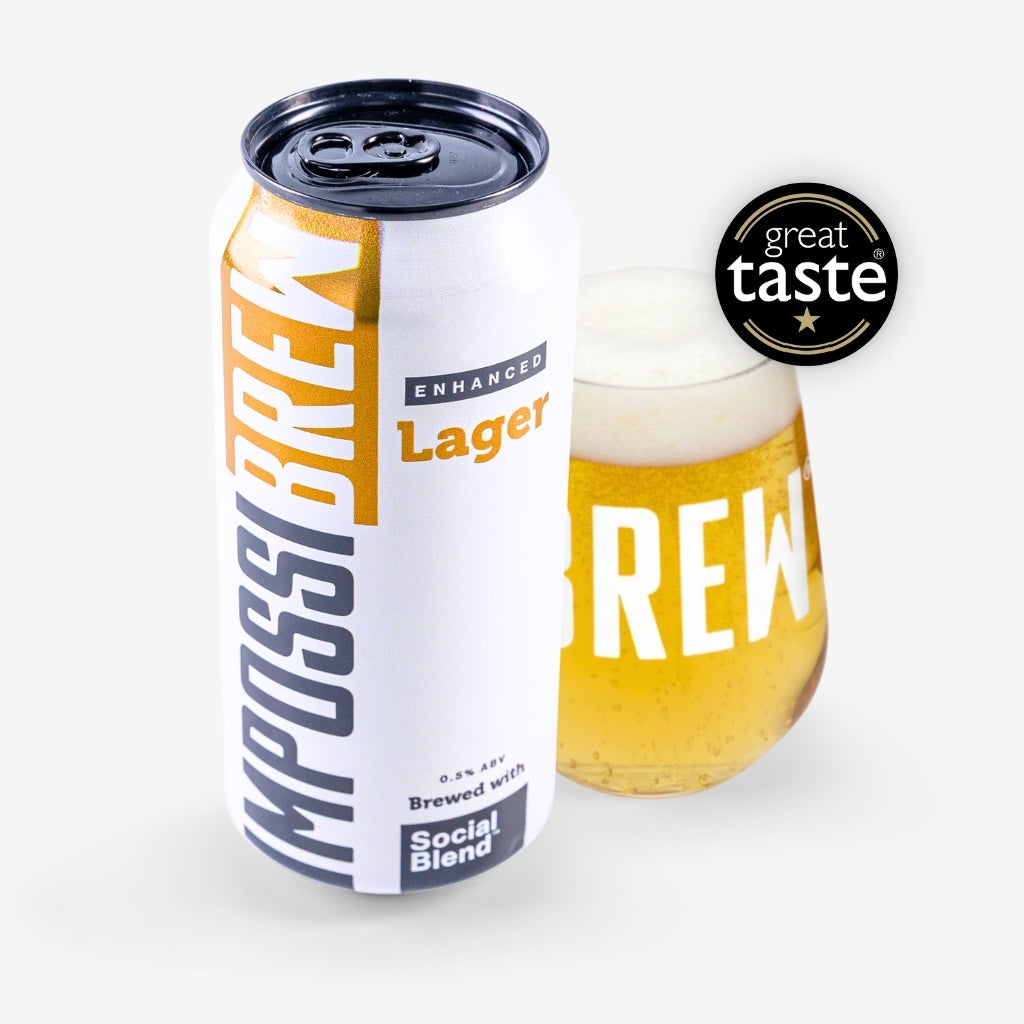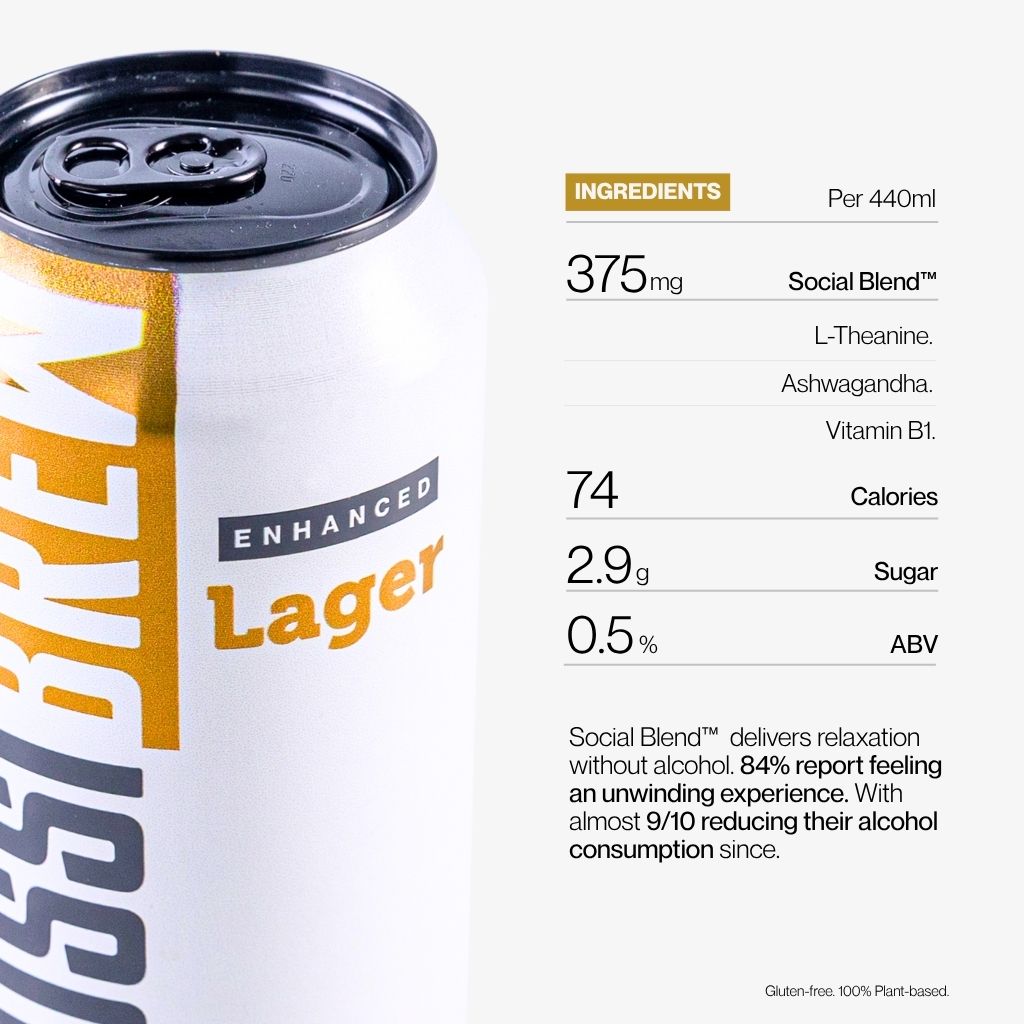5 Barriers to Non-Alcoholic Beer Acceptance
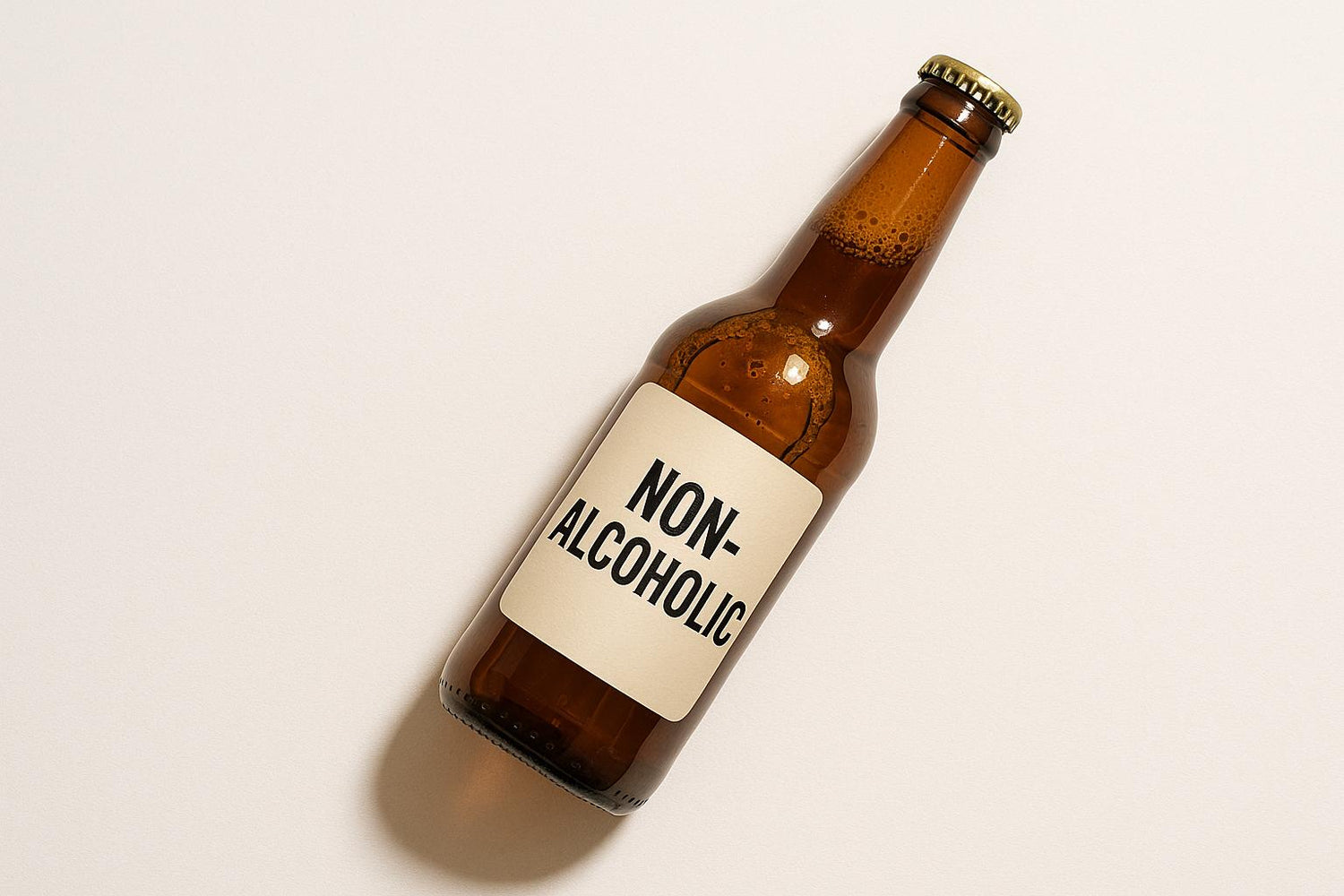
Non-alcoholic beer is growing fast in the UK, with sales up 20% in 2024 and now making up over 2% of total beverage alcohol sales. Pubs are catching on, with 87% offering at least one low- or no-alcohol option. Younger generations, especially Gen Z, are drinking less, and tax cuts on low-alcohol beers are boosting the market. But challenges remain:
- Taste Issues: Non-alcoholic beers often lack the flavour complexity of traditional beers due to brewing limitations, though newer methods like cryogenic fermentation are improving this.
- Social Stigma: Many feel judged for choosing non-alcoholic options, especially Gen Z men, who often avoid them unless friends do the same.
- Limited Availability: Non-alcoholic beers are rarely available on draught in pubs, creating a cycle of low demand and limited supply.
- Deep-Rooted Habits: Alcohol is a major part of UK social life, making a switch to non-alcoholic options slow.
- Knowledge Gaps: Misconceptions about taste, calories, and quality still deter many consumers.
While progress is being made through better brewing, marketing, and changing attitudes, these barriers need addressing for non-alcoholic beer to reach its full potential.
Heineken® 0.0 commissions new study, revealing going alcohol-free can still raise eyebrows
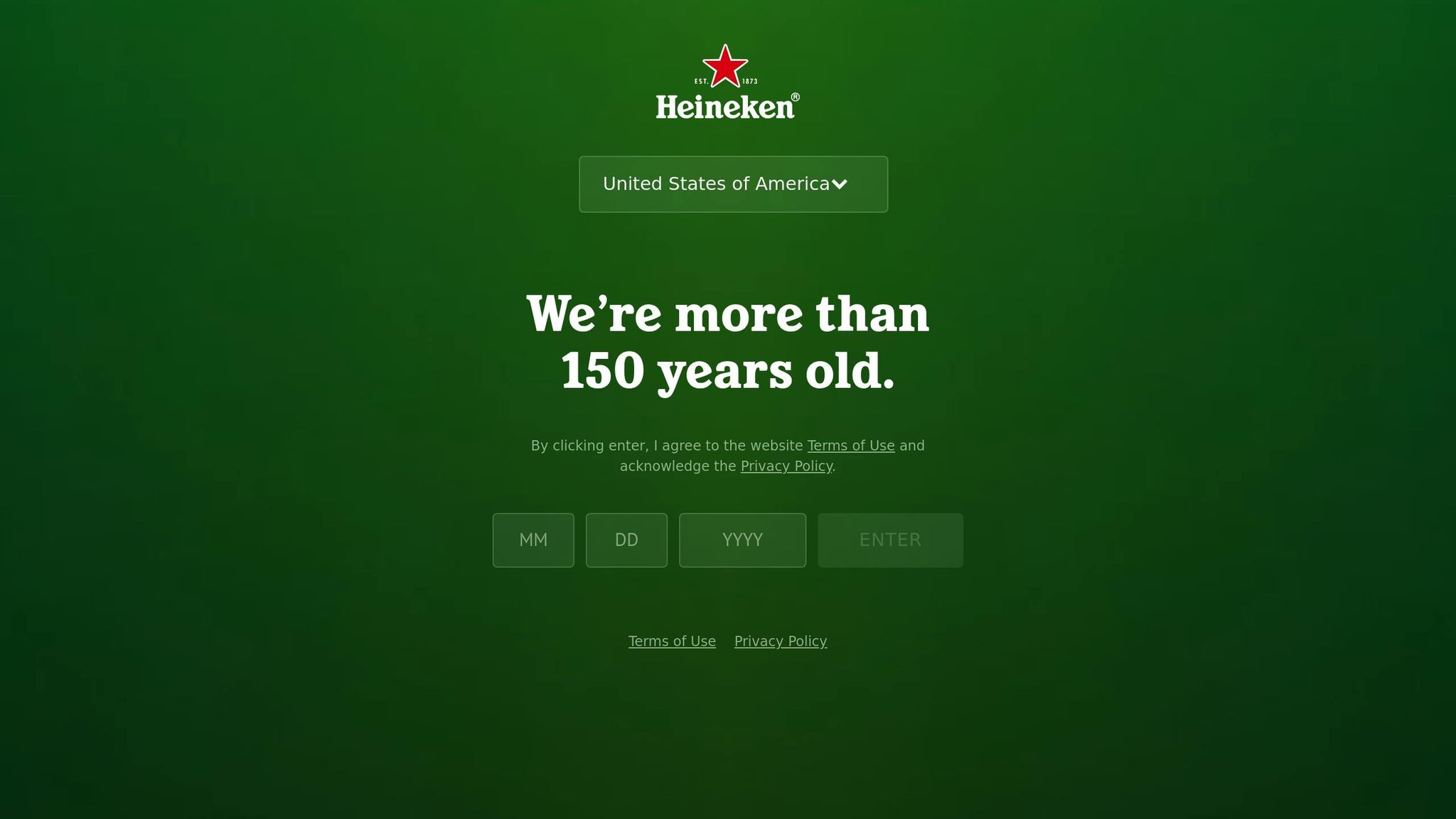
1. Poor Taste and Flavour Quality
One of the biggest challenges for non-alcoholic beer is its struggle to match the flavour complexity of traditional beer. Alcohol, beyond its intoxicating effects, plays a vital role in brewing - it acts as a solvent, extracting and amplifying the complex flavours that beer lovers expect. Without ethanol, non-alcoholic beers often lack the depth and sensory richness that are key to a satisfying beer experience [3].
Studies on consumer perception highlight these differences, showing that non-alcoholic variants often fall short in delivering the same sensory appeal [4].
The brewing process itself adds to the difficulty. Techniques used to remove or reduce alcohol - such as halting fermentation early or removing alcohol post-production - can disrupt flavour development. For instance, stopping fermentation too soon prevents yeast from fully processing aldehydes, resulting in a sweeter, less aromatic beer. Similarly, vacuum distillation, even when done at lower temperatures, can strip away volatile compounds that are essential for flavour [6].
However, modern brewing techniques are helping to close this gap. Methods like arrested fermentation, vacuum distillation, reverse osmosis, and even the use of specialised yeast strains are being refined to preserve flavour. Some brewers are also experimenting with enzymes and bacteria to alter the beer’s chemical structure, allowing for more complex flavour development without producing significant amounts of alcohol [7][8]. These advancements are steadily improving the taste of non-alcoholic beer, making it more appealing to consumers.
A great example of this innovation is seen in IMPOSSIBREW®, which uses a cryogenic method to tackle the flavour challenge. Founder Mark Wong explains:
"By suddenly putting it in a very cold state, parts of the process are halted and parts of the process are activated to make sure the flavour is retained." [9]
In addition to this method, IMPOSSIBREW® incorporates their proprietary Social Blend™ of nootropic herbs, designed to replicate the relaxing effects of alcoholic beer while addressing the taste gap [9].
Despite these hurdles, the non-alcoholic beer market is thriving. Valued at around £7.1 billion and growing at an annual rate of 7.5%, the market shows that innovative brewing techniques are gradually winning over consumers by delivering flavour profiles that come closer to traditional beer [5].
2. Social Stigma and Peer Pressure
When it comes to non-alcoholic beer, social factors can be as challenging as taste preferences. Many people still hesitate to choose non-alcoholic options in group settings, not because of the flavour, but because of deeper issues tied to social identity and the need to fit in.
The Generation Gap in Social Pressure
For Gen Z, the pressure to conform to drinking norms is particularly intense. Over a third of Gen Z drinkers admit they feel pressured to drink alcohol in social situations [10]. In fact, 21% of Gen Z respondents reported being criticised for choosing a non-alcoholic drink, a rate higher than the generational average of 15% [10]. The issue is even more pronounced for Gen Z men - nearly 38% said they would only consider low- or no-alcohol options if their friends did the same [11].
This reveals how ingrained cultural norms shape drinking habits. Professor Charles Spence from the University of Oxford highlights this point:
"For generations, alcohol has played a central role in the way humans socialise, therefore dominant assumptions and stereotypes surrounding our drinking habits remain deeply ingrained in society." [11]
The Perception Problem
Non-alcoholic beer drinkers often face a perception issue. Research shows that only 9% of people associate non-alcoholic drinkers with being 'cool', and just 25% consider them 'respectable' [10]. Among Gen Z men, 29% said they feel the need to explain their choice when opting for a non-alcoholic drink [11]. These perceptions create a cycle where choosing non-alcoholic options feels like swimming against the current.
The Social Pressure Cycle
Peer pressure plays a significant role in drinking decisions. 14% of respondents admitted they always end up drinking alcohol at social gatherings, even when they intended to opt for low- or no-alcohol options. This number jumps to 51% when including those who said they 'sometimes' change their minds [10].
Joanna Price acknowledges this ongoing challenge:
"Our research shows that the acceptability of 0.0 beer is at an all-time high. However, social stigmas still hinder our vision that everyone should always have a choice and should not be held back from choosing 0.0." [10]
Breaking Down the Barriers
The good news is that the industry is taking steps to tackle these social hurdles. In January 2025, Heineken launched its '0.0 Reasons Needed' campaign to address the stigma around alcohol-free choices. The campaign resonated widely, achieving 10,300 total engagements, a potential reach of 979 million, and a 97% positive/neutral sentiment [13].
Sol Ghafoor from Le Pub, the agency behind the campaign, explains the approach:
"We're empowering consumers to confidently choose Heineken 0.0 without fear of judgment or the need for explanations. By normalising its presence in any social occasion, we're overcoming barriers, expanding its appeal, and driving growth – all while solidifying Heineken 0.0's position as the market leader." [13]
The Path Forward
Change is on the horizon. More than 80% of people believe that drinking no- and low-alcohol options is more acceptable now than it was five years ago [10]. Additionally, 68% of respondents across the UK, US, Spain, Japan, and Brazil reported trying no- and low-alcohol products [10].
Professor Spence points out an interesting paradox:
"The results of the study surprisingly show the social pressures in this space are most notably felt by Gen Z, the generation who are arguably most familiar with NAB options." [10]
This suggests that simply being familiar with non-alcoholic beverages isn’t enough to eliminate stigma. Instead, the industry must actively work to reshape social norms and make these choices feel natural and accepted. With nearly 49% of Americans aiming to reduce their alcohol consumption in 2025 [12], the demand for socially acceptable alternatives is only set to grow.
3. Limited Availability in Venues
Walk into most UK pubs, and you’ll find the same setup: traditional beer taps pouring classic options, but non-alcoholic choices? Rarely available on draught. This lack of variety not only limits consumer choice but also stifles the growth of the non-alcoholic beer market. But why is this the case? Let’s dig into the challenges faced by venue owners.
The Venue Owner's Dilemma
For many pub and bar owners, dedicating a tap to non-alcoholic beer feels like a gamble. Tapped kegs come with a shorter shelf life compared to cans or bottles, meaning they risk going to waste if sales are slow. Add to that the hurdles of sourcing from craft breweries with limited distribution, and the idea of allocating precious storage space to non-alcoholic options becomes even less appealing [14][15].
The Chicken and Egg Problem
Here’s the catch: venues are reluctant to stock non-alcoholic beer because of low demand, yet customers aren’t ordering it because it’s rarely available. It’s a classic chicken-and-egg scenario. Concerns over profitability and the logistical challenges of storage only deepen this cycle of hesitation [16].
The Impact on Market Growth
This scarcity directly impacts the market's ability to grow. Even though there are success stories - like a hotel that managed to double its sales of non-alcoholic options in just five months - many venues remain sceptical. Doubts about demand, profitability, and the need to educate consumers continue to hold back progress [17][19].
Regional Differences Tell a Story
Interestingly, the UK’s struggles with non-alcoholic beer on tap stand in stark contrast to places like Germany and Spain, where it’s a standard offering. In countries where beer and alcohol are deeply intertwined, non-alcoholic options remain a niche choice [14].
Signs of Change
However, the tide is slowly turning. Growing interest in mindful drinking is pushing venues to rethink their offerings. Take Heineken’s 'Always a Choice' campaign, for example - over 60% of European outlets now serve their alcohol-free option, showing that change is possible when consumer demand meets proactive initiatives [18].
Breaking the Cycle
Breaking this cycle of limited availability requires effort from both sides. Customers need to ask for non-alcoholic choices, while venues must take the leap to feature them. Proper staff training on storage and service can also make a big difference, ensuring these options are served at their best [16][17].
sbb-itb-a752bf8
4. Deep-Rooted Drinking Habits
In the UK, alcohol holds a central place in social life. From casual after-work drinks to celebratory weekends, it’s more than just a beverage - it’s a tradition. This deeply ingrained culture makes the acceptance of non-alcoholic beer a challenging prospect.
The Cultural Weight of Tradition
Alcohol shapes how people connect and celebrate, as highlighted by OYNB:
"Alcohol is a big part of culture, influencing traditions and daily life in the UK. It's deeply rooted in society and impacts how people interact and celebrate." [2]
Switching to non-alcoholic options isn’t just about choosing a different drink. It involves questioning long-standing customs and social rituals, which are reflected in the nation’s consumption patterns.
The Numbers Behind the Habit
The statistics paint a clear picture of how entrenched drinking habits are. In England and Scotland, 24% of adults regularly exceed recommended alcohol limits. Additionally, 15% of adults reported binge drinking weekly in 2019, with the highest rates among 24 to 34-year-olds [2].
Generational Shifts Signal Change
However, a shift is underway. Younger generations, particularly Millennials and Gen-Z, are drinking less than their predecessors. Many are turning to non-alcoholic options at social events, reflecting a growing preference for clarity and healthier lifestyles [20][21].
Breaking Through Established Patterns
Challenging these deeply rooted habits takes more than introducing new products. Alcohol is intertwined with social, cultural, and even religious practices across Western countries [20]. Yet, initiatives like the UK's "Dry January" show that change is possible. For instance, participation in Dry January grew from 17,000 people in 2014 to 4.2 million by 2018 [20].
The Health-Conscious Revolution
The rising focus on health and wellness is also reshaping drinking norms [2]. Non-alcoholic options offer a way to stay socially engaged without the drawbacks of alcohol. This aligns with the growing demand for healthier choices. Non-alcoholic beer, for example, has become the fastest-growing segment in the UK’s drinking market, showing a 27% rise this year and a 58% increase last year [20]. While traditional drinking habits remain strong, these trends suggest they are gradually evolving.
The Path Forward
Shifting drinking habits is no small feat, but progress is evident. Social norms are slowly adapting, with more people embracing non-alcoholic alternatives and prioritising health [20]. As this momentum builds, it’s clear that even the most established patterns can change over time. The transformation of drinking culture is underway - one small step at a time.
5. Lack of Consumer Knowledge
While flavour and social norms significantly influence market trends, a lack of consumer knowledge also plays a major role in shaping purchasing decisions. Despite the rapid growth of the non-alcoholic beer market, many consumers remain unaware of the strides made in improving quality and variety. This knowledge gap continues to hinder broader acceptance, highlighting persistent misconceptions that deserve closer examination.
The Scale of Misconception
The non-alcoholic beer market has seen remarkable growth, reaching roughly £28 billion globally in 2023 - outpacing the growth of traditional beer [43, 5]. Yet, outdated beliefs about non-alcoholic beer still cloud consumer judgement. Many people wrongly assume that these beers are low-quality or suitable only for those who don’t drink alcohol. Others mistakenly believe they are packed with calories, made with artificial ingredients, or entirely alcohol-free, when in fact most contain up to 0.5% ABV [22]. These misconceptions continue to undermine consumer confidence, despite significant advancements in the industry.
The Calorie Confusion
Calorie content is another area where misinformation persists. Some consumers assume non-alcoholic beers are always low in calories, while others worry they might be calorie-heavy. The reality is more nuanced: calorie counts vary by brand, but non-alcoholic beers generally have fewer calories than their alcoholic counterparts. For instance:
| Beverage | Calories | Carbohydrates (g) |
|---|---|---|
| Athletic Brewing Upside Dawn | 50 | 12 |
| Budweiser | 146 | 10.6 |
| Bud Light | 103 | 4.6 |
| Coors NA Beer | 45 | N/A |
Most regular beers contain between 150 and 300 calories per can, while non-alcoholic options typically range from 20 to 80 calories [22]. However, some brands may include added sugars or other ingredients, which can increase calorie and carbohydrate levels. This highlights the importance of educating consumers about what’s actually in their drink.
The Quality Revolution
Thanks to modern brewing techniques, the quality of non-alcoholic beers has improved dramatically. Recent research shows that these beers now match traditional ones in terms of flavour and quality. They also offer additional health benefits, such as essential minerals and antioxidant phenolic compounds, while avoiding the negative effects of alcohol [23]. This shift has redefined what consumers can expect from non-alcoholic options.
The Awareness Gap
Despite advancements in taste and brewing, a significant knowledge gap remains. This gap represents both a challenge and an opportunity. In the UK, sales of non-alcoholic drinks have risen by 58% year-on-year, yet 52% of the population still express a desire for more non-alcoholic options [45, 48]. Millennials are driving much of this change, with 61% of non-alcoholic beer consumers in April 2024 - up from 45% the previous year. Moreover, product launches featuring non-alcoholic claims grew at an annual rate of 17% between 2016 and 2021 [24].
Breaking Through the Knowledge Barrier
Addressing outdated perceptions requires effective education and marketing campaigns that highlight the authentic taste and social appeal of non-alcoholic beers. Brands like IMPOSSIBREW® are taking the lead by showcasing how innovative brewing techniques can create non-alcoholic beers that deliver on both flavour and social enjoyment, helping to reshape consumer expectations and bridge the knowledge gap.
Conclusion
The journey of non-alcoholic beer in the UK has been shaped by challenges like taste concerns, social stigma, limited availability, ingrained drinking habits, and gaps in consumer knowledge. However, these hurdles are gradually being overcome thanks to innovation and changing attitudes.
A New Era of Taste and Quality
At the heart of the shift is a focus on taste. Poor flavour, once a major drawback, is being addressed with technological advances. A standout example is IMPOSSIBREW® and its RealBrew™ cryogenic fermentation method, which preserves the authentic flavour of beer [26]. This commitment to quality has earned the brand accolades, including recognition at the World Beer Awards 2023, where its Enhanced Lager and Pale Ale were named the UK's best non-alcoholic beers. IMPOSSIBREW® has also won multiple Gold awards in categories traditionally dominated by full-strength beers [25]. Beyond taste, the brand has tackled the social aspect with its Social Blend™ - a mix of botanicals and nootropics designed to mimic the relaxing effects of alcohol without the downsides [25]. This dual focus on flavour and experience is helping to reshape perceptions.
Shifting Social Norms
The stigma surrounding non-alcoholic beer is fading as attitudes evolve. Today, nearly half (48%) of UK adults regularly consume alcohol-free options, with younger generations leading the way [27]. Laura Willoughby, founder of Club Soda, highlights this shift:
"Today, alcohol‐free drinks are a valued part of social gatherings" [27].
For IMPOSSIBREW®, the impact is clear: over 70% of its customers report feeling more relaxed after drinking its products, and 88% have reduced their alcohol consumption since discovering the brand [25].
A Market on the Rise
The growth of the non-alcoholic beer market is undeniable. Globally, the market expanded by more than 40% between 2018 and 2023 [1]. In the UK, sales are set to grow at an annual rate of 6.5% from 2024 to 2034, with revenue projected to reach £1,976.7 million by 2034 [29]. By 2025, no- and low-alcohol drinks are expected to account for 2.3% of all off-trade alcohol sales, up from 1.5% in 2023 [28]. This upward trend is supported by strong investments and growing consumer trust.
Consumer Confidence in Action
The success of brands like IMPOSSIBREW® demonstrates the potential of non-alcoholic beer when key barriers are addressed. The brand has sold over 1 million units, with 95% of customers recommending it and 75% calling it the most complete alcohol alternative on the market [25].
Looking Ahead
By tackling issues like taste, stigma, and availability, and addressing traditional habits and misconceptions, the non-alcoholic beer market is poised for further growth. Improved product quality, evolving social attitudes, and increased consumer awareness are driving acceptance across the UK. As Nandini Roy Choudhury from Future Market Insights notes:
"The non‐alcoholic beer industry is experiencing significant growth as consumers increasingly prioritise health and wellness. Driven by the rising popularity of the 'zero‐proof movement,' innovative flavours, and the expansion of craft and artisanal options, non‐alcoholic beers are gaining widespread acceptance across various regions" [29].
What once seemed like insurmountable barriers are now temporary challenges. With continued innovation and a commitment to quality, the future of non-alcoholic beer in the UK looks brighter than ever.
FAQs
How have modern brewing techniques improved the flavour of non-alcoholic beer?
How Modern Brewing Techniques Transform Non-Alcoholic Beer
Advances in brewing have reshaped how non-alcoholic beer tastes, making it closer than ever to its traditional counterparts. Techniques such as vacuum distillation and reverse osmosis are game-changers. By removing alcohol at lower temperatures, they manage to keep the beer's original flavours intact, ensuring that the essence of the drink isn't lost.
Other breakthroughs include cryogenic fermentation, which stops alcohol production while preserving the beer's taste profile, and the use of specially designed yeast strains. These unique yeasts bring out the rich hoppy and malty notes, giving non-alcoholic beers a depth of flavour that was once hard to achieve.
Thanks to these methods, non-alcoholic beers have become a genuine contender for those looking for alcohol-free options without compromising on taste.
What are some ways to reduce the stigma around choosing non-alcoholic beer in social settings?
Efforts to change the way people view non-alcoholic beer often centre around transforming outdated ideas and encouraging inclusivity. One key approach is through marketing campaigns that challenge old stereotypes, presenting alcohol-free beer as a contemporary and responsible choice. These campaigns send a clear message: you don’t need to justify choosing a non-alcoholic option - it’s simply part of leading a balanced lifestyle.
Brands are also working hard to integrate non-alcoholic beer into the fabric of social drinking culture. By focusing on its quality, taste, and versatility, they aim to make it a natural and appealing choice. This approach helps consumers feel confident about opting for alcohol-free alternatives, gradually breaking down stigma and fostering a more accepting attitude.
Why don’t UK pubs serve non-alcoholic beer on draught more often?
Non-alcoholic beer is a rare sight on draught in UK pubs, and this comes down to a mix of practical challenges and cultural habits. Many pubs assume there’s not enough demand to justify dedicating one of their limited tap lines to non-alcoholic options. On top of that, kegs of non-alcoholic beer tend to have a shorter shelf life, which can make storage and turnover tricky.
From a cultural perspective, beer in the UK is still heavily tied to its alcoholic identity, which can make non-alcoholic versions less appealing to some pub-goers. That said, with growing interest in alcohol-free choices, more pubs are starting to test the waters. This shift could mean we’ll see non-alcoholic beer becoming a more common feature on tap in the future.
Related posts
Next Generation Alcohol-Free Beer
IMPOSSIBREW®: The Enhanced Non-Alcoholic Beer designed as an alternative to full ABV beers using patent-pending technology*.
Enjoy a healthier daily wind down with the beer that matches the taste and feeling of traditional alcohol.
Keep the pleasure and ritual of drinking without worrying about your health.
Get Started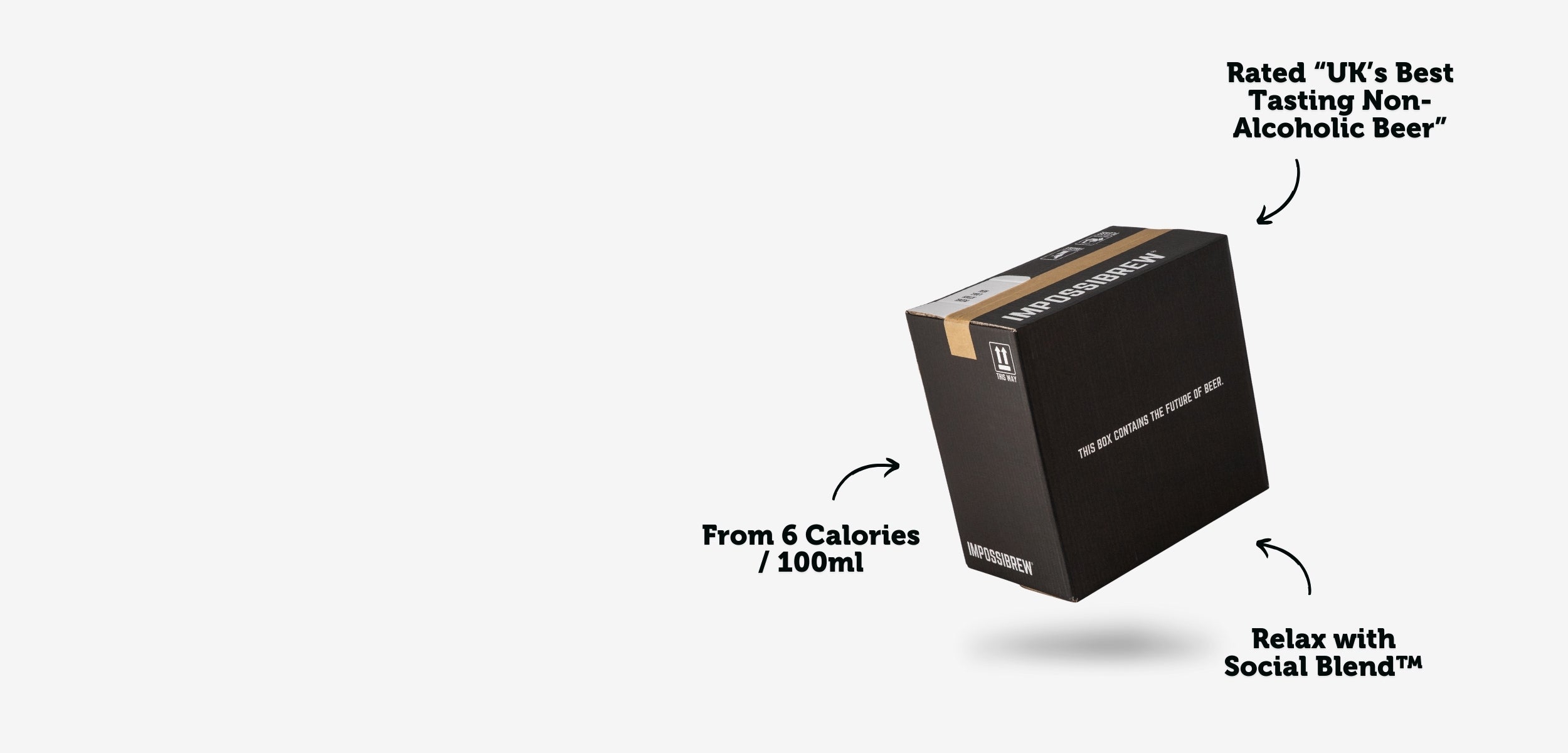
Next Generation Alcohol-Free Beer
IMPOSSIBREW®: The Enhanced Non-Alcoholic Beer designed as an alternative to full ABV beers using patent-pending technology*.
Enjoy a healthier daily wind down with the beer that matches the taste and feeling of traditional alcohol.
Keep the pleasure and ritual of drinking without worrying about your health.
Get StartedAward-winning Taste
Rated "UK's Best Non-Alcoholic Beer" by the prestigious World Beer Awards.
From 16 Calories / 100ml
Low Calorie. Low Carb. Vegan-friendly. <0.5% ABV. Gluten-Free (Lager)
Social Blend™
Our proprietary alcohol alternative made from a blend of science-backed ingredients designed to replicate the sensory, social and relaxing experience of drinking. Read more here.
Got Questions?
Find our most commonly asked questions below or ask our AI Brewer for instant answers.
What is IMPOSSIBREW®?
IMPOSSIBREW® is a pioneering non-alcoholic beer brand based in the UK that aims to create the world's most complete alcohol alternative using patent-pending technology.
Founded by Mark Wong in 2021 and working with some of the world's best professors, scientists and expert brewers, IMPOSSIBREW® specialises in expertly crafted non-alcoholic beers designed to match full ABV beers in both taste and feeling.
Product Range
IMPOSSIBREW® offers a range of enhanced non-alcoholic beers, including:
- Enhanced Lager (0.5% ABV)
- Enhanced Pale Ale (0.5% ABV)
- Limited Editions (Seasonal)
Key Benefits
The key feature that sets IMPOSSIBREW® apart is its proprietary "Social Blend™" - a combination of active botanical ingredients and nootropics using patent-pending technology* designed to recreate the relaxing effects of alcohol without the negative side effects.
Along with record-breaking quality flavour that comes from a unique process without removing alcohol.
Social Blend™ Ingredients
Developed with leading scientists in top UK universities, Social Blend™ includes:
- L-Theanine
- Ashwaghanda
- Soluble Plant Fibres
- Vitamin B1
- Various Plant Extracts.
These ingredients are chosen for their potential to boost serotonin, promote relaxation, and create a calming effect similar to the "one or two pint feeling" without hangovers.
See more details on our very own research paper, with over 1,000 participants:
- More than 70% said they felt relaxed after consuming IMPOSSIBREW®.
- 88% have reduced alcohol consumption since discovering IMPOSSIBREW®.
- 95% have told a friend about IMPOSSIBREW® after trying.
- 3/4 say that IMPOSSIBREW® is "the most complete alcohol alternative currently available on the market today".
Recognition
IMPOSSIBREW® has received several notable achievements:
- Featured on BBC's Dragons' Den
- Awarded the first and only Gold Medal in the No/Low beer category from the London Beer Competition
- Received multiple industry Gold awards in categories against Full-ABV beers
- Most followed No/Low Alcohol brand on TikTok globally.
Mission and Vision
IMPOSSIBREW® is on a mission to redefine non-alcoholic drinking by creating better-than-alcohol alternatives for those who love beer but want to avoid the health risks associated with alcohol consumption.
The company aims to become the global leading alcohol alternative brand, focusing on helping people transition to a healthier mode of relaxation without the traditional issues and side effects of alcohol.
Production and Ingredients
IMPOSSIBREW® combines traditional brewing methods with their proprietary Social Blend™ along with patent-pending technology*
The beers are made with traditional brewing ingredients such as water, malted barley, wheat, hops, and yeast, in addition to the Social Blend™ components - leveraging their unique cryogenic fermentation process, which means no alcohol is ever removed from the product - ensuring the most authentic quality taste you've come to expect.
Who is it for?
IMPOSSIBREW® caters to consumers who:
- Are busy professionals and parents who would like to unwind with a drink but don't want the hangovers.
- Enjoy the taste and relaxing experience of beer
- Are looking for healthier alternatives to alcohol, with lower calories, carbs and sugar
- Want to avoid hangovers and other negative effects of alcohol consumption
- Are interested in functional beverages with potential mood-enhancing properties
By offering a unique product that aims to replicate both the taste and feeling of alcoholic beer, IMPOSSIBREW® is positioning itself at the forefront of the growing non-alcoholic beverage market.
Get Started Today
Give it a try today with our Welcome Bundle and get 2 Free Beers with your first purchase. Get it delivered straight to your door, risk-free with our 30-day money-back guarantee.
We hope you enjoy them as much as we do and we can't wait for you to try.
*Patent pending in the UK under application number GB2415685.3
How does 'Social Blend™' work?
Social Blend™ is our proprietary alcohol alternative made from a blend of science-backed ingredients using patent-pending technology*.
Designed to replicate the sensory and social relaxing experience of drinking, minus the headaches (and bad decisions).
Developed with Dr Paul Chazot, Bioscience Professor and Chair of Pharmacology at Durham University.
Key Components and Mechanisms
- L-Theanine:
- Ashwagandha Root:
- Vitamin B1 (Thiamine):
- Various nootropic herbs:
Benefits
- Relaxation: The blend promotes a state of relaxation without the sedative effects typically associated with alcohol.
- Mental Calm: By boosting alpha brain waves and serotonin levels, it helps maintain a calm and focused mental state.
- Stress Relief: The combination of L-Theanine, Ashwagandha, and Vitamin B1 helps mitigate stress and anxiety.
- Mood Enhancement: The inclusion these ingredients and other botanicals supports mood regulation and overall positive outlook.
IMPOSSIBREW®'s Social Blend™ is a carefully crafted combination of nootropic and adaptogenic ingredients designed to offer a relaxing and mood-enhancing experience without the drawbacks of alcohol. It leverages the natural properties of its components to promote relaxation, reduce stress, and enhance mood, making it a unique alternative to traditional alcoholic beverages.
(Read our latest research paper here)
*Patent pending in the UK under application number GB2415685.3
Do you ship overseas?
We ship to the UK Mainland for free when you spend over £35
We aim to expand internationally soon - stay tuned!
If you have any queries, feel free to email: hello(@)impossibrew.co.uk
How long will it take to get my orders?
For UK mainland deliveries, normal orders processed here will take 1-3 business days to arrive, with an optional upgrade to Next Day Delivery available (12pm cut-off).
Delivery details will be provided in your confirmation email.
How is 0.5% ABV alcohol-free?
Yes, we know it's confusing. Isn't 0.5% ABV still alcoholic? Officially, 0.5% ABV is classified as Dealcoholised.
- In fact, most things we consume daily have more than 0.5% ABV
- Burger Rolls - 1.2% ABV
- Orange Juice - 0.5% ABV
- Ripe Banana - 0.5% ABV
After more than 2 years of research, we've found that the 0.5% ABV from our natural brewing process significantly increases both flavour and mouthfeel - without spiking your blood alcohol level (BAC).
Is it really gluten-free?
Yes, IMPOSSIBREW® Enhanced Lager is gluten-free. Even though it contains wheat and barley, our beers have been third-party tested to contain less than 10 parts per million (PPM) of gluten, which meets the criteria to be listed as, and labeled gluten-free.
Does it have alcohol tax?
No. While it is true that our beers don't contain alcohol, and thus don't incur UK alcohol duty, we'd like to highlight some factors here that might be helpful in reflecting the value we provide.
- One-to-One Brewing Process: At IMPOSSIBREW, we take pride in our unique brewing techniques. Unlike other non-alcoholic beers, our products are never diluted, watered-down, or have their alcohol content removed - and some even dilute their alcoholic beers up to 5x. This means that our brewing process involves the same level of craftsmanship, time, and resources as a traditional craft beer, resulting in comparable production costs.
- Effective Nootropics: In our commitment to creating the most relaxing non-alcoholic beers, we utilise only the highest quality nootropics as our active ingredients, in safe and effectives dosages. At current alcohol tax rates for a 5% ABV beer, the cost of our nootropics more than double that. Instead of contributing the amounts as tax, why not have it contribute to the product quality itself?
- Small Scale Brewing: Currently, we operate on a smaller scale, which makes us less competitive than large, commercial brewers (often +10,000x our brewing size). As a growing business, we are passionate about our mission to create unique, high-quality non-alcoholic experiences, and we truly appreciate your support. As we continue to grow and expand our production capabilities, we look forward to passing on even more savings to our valued community!
At IMPOSSIBREW, we prioritise offering our customers an enhanced, premium, non-alcoholic beer experience by combining innovative brewing techniques, quality active nootropic ingredients, and award-winning taste. While our pricing may differ from other non-alcoholic competitors, we believe that the value proposition and unique experience our beers provide are well worth it.
At the end of the day, tasting is believing. So give it a try and let us know what you think - risk-free with our IMPOSSIBREW® Guarantee.
Who shouldn't drink IMPOSSIBREW®?
It is not recommended for pregnant or breastfeeding women, those with certain medical conditions like GI disorders or hypertension, or individuals taking specific medications such as antidepressants, immunosuppressants or blood thinners. If you fall into any of these categories, it's best to consult with your doctor first.
Ashwagandha can lead to overstimulation (i.e. restlessness) if taken alongside thyroid medication.
What is your philosophy?
For thousands of years, we had only one way to unwind together. One way to let our guards down. One way to bridge the gap between who we are and who we are with others.
Not because it was perfect. But because it was all we had.
We decided that wasn't good enough.
We exist because we believe in a world where social connection doesn't demand compromise.
Where being present with others doesn't mean being absent from yourself. Where letting go doesn't mean losing control.This isn't about removing alcohol. This is about something better.
Our Social Blend™ technology isn't an accident. It's the result of questioning everything we thought we knew about social drinking. About working with scientists to understand what we're really seeking in these moments of connection. About daring to imagine something that wasn't possible before.
We believe the greatest innovations don't just solve problems - they change how we live. They make us question why we ever settled for less.
That's what we're building. Not just a drink, but a new way forward. A future where social connection comes without compromise. Where tradition meets innovation. Where science meets ritual.
This is the future of social drinking.
Got more questions?
Speak to our AI Brewer here for instant answers.
Or email us at hello@impossibrew.co.uk
Our customer support is available Monday to Friday: 9am - 5:30pm.

















